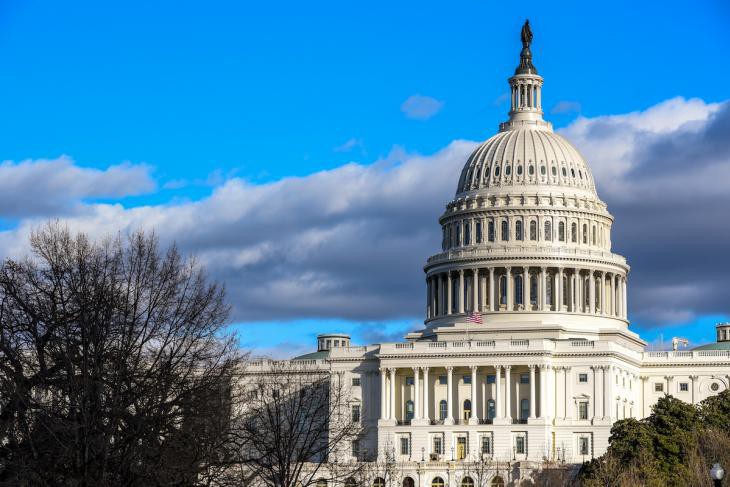These Tips are all about TRUST — how to build it, how we need it in schools (and everywhere), how to spot and avoid distrust, etc. etc…
This was originally posted on Medium
These Tips are all about TRUST — how to build it, how we need it in schools (and everywhere), how to spot and avoid distrust, etc. etc…
This was originally posted on Medium

This was originally posted on Medium

A trusting relationship between school, home is essential for excellent outcomes in special education | EdSource
This was originally posted on Medium
Here’s another vignette –a short, very short story, gathered from my many years of teaching, being a hearing officer, school attorney…
This was originally posted on Medium
It’s been a while since I posted here at Medium.com. I’ve missed doing that. So, I’m back!
Where have I been writing? Over the last year or so, I’ve written weekly posts — actually, three sets of Tips, called Tuesday Tips — that I’ve shared with my email audience. Each set had 13 entries. So far, that’s 39 Tips!
Now, I’d like to share them here at Medium.com, because many people have asked for them — to enjoy and hopefully, even benefit from them. I’ll start with the last set.
This was originally posted on Medium

Years ago, when my Boston law firm hired me, Bob, the hiring partner, gave me a piece of advice: Return phone calls the same day, even if just to say that you got the call and will be in touch later.
This was originally posted on Medium


TRUST — Build trust for schools, students, and parents because trust is the coin of the realm!
I believe that TRUST is necessary for excellent education — trust among players — students, teachers, parents, administrators, tax payers, and others.
Excellent education means that students learn all they can to become all they can be! That is the WHY of schools; it’s where our discussion should start — with the WHY. Schools should focus on student competence every day, all the time. Yet, they often can’t and don’t. As I see it, lack of trust contributes to that.
Positive relationships between schools and families are vital. Yet, the special education law and dispute resolution don’t promote that. In fact, as I see it, they head in the opposite direction! They are costly, anxiety-producing, and often trust busters for all parties, with NO research proving that the mandated procedures and requirements improve student outcomes. Tragic.
What is trust? It’s a firm belief that you can rely on the strength, ability, truthfulness, honesty, of someone or something. It gives you confidence in that reliance.
The “coin of the realm” is a country’s legal currency, valued like money. Before he died at age 100, George Shultz reflected on advice he got when he first became Secretary of State — “Trust is the coin of the realm.” He carried that lesson with him for his entire life — and wrote a short and breezy book about trust and relationships to celebrate his 100th. shultz_finalfile_web-ready.pdf (hoover.org) It includes this gem:
“When trust was in the room, whatever room that was — the family room, the schoolroom, the coach’s room, the office room, the government room, or the military room — good things happened.
When trust was not in the room, good things did not happen.
Everything else is details.”
And, there’s this about trust. The US is the only established democracy where the level of ‘social trust’ is falling. ‘Social trust’ means that people believe that most people can be trusted and that they’ll abide by established norms. For example, they believe that if your lost wallet is found, someone will return it to you! Our social trust used to be 50%; now it’s less than a third. Without trust, what’s left? “Why are Americans So Distrustful of Each Other?” The Wall Street Journal, December 19–20, 2020.
And, as you can imagine, distrust is trust’s opposite. Here’s Francis Fukuyama’s excellent summary:
“By contrast, people who do not trust one another will end up cooperating only under a system of formal rules and regulations, which have to be negotiated, agreed to, litigated, and enforced, sometimes by coercive means. This legal apparatus, serving as a substitute for trust, entails what economists call “transaction costs.”
“Widespread distrust in a society, in other words, imposes a kind of tax on all forms of economic activity, a tax that high-trust societies do not have to pay.” Citation at end of this post.
“Transaction costs.” One special education statistic that remains in my head is this. Teachers have just 27% of time left to teach. The rest is taken up with writing reports, attending meetings and other bureaucratic requirements — “transaction costs.” Yet, for the WHY — we have NO evidence that these improve outcomes!
“We have a problem, Houston!” Trust is NOT in the air!
What can we do about it? This post is designed to be practical and helpful with steps you can take on Monday!
First, words matter. Use them wisely. Be honest. Avoid ‘doublespeak.’ Try not to create an ‘honesty gap!’ The Merriam-Webster Dictionary defines ‘doublespeak’ as language that can be used in more than one way and is used to deceive people. The term, ‘honesty gap’, popped up in the testing/achievement arena and refers to the gap between information parents receive and how students are actually doing. An ‘honesty gap’ and ‘doublespeak’ are trust busters. Don’t use them!
Here are some oft-used terms that I see as trust busters.
“Closing the gap.” A great goal, but what does it mean? Is it real? Concerns are raised when we lower or ‘dumb down’ standards, provide invalidating modifications, hurt advanced students who are already proficient, obsess about getting all students to college, ignoring the real world benefits of vocational and technical education and the reality that many students are unprepared for college, etc. etc. Joke: We can “close achievement gaps” by simply ending achievement! How about aiming to “narrow gaps” — which may be more realistic and honest. And, far more satisfying because it gets to the WHY of education — how about focusing on student competence as CBE (competency based education) schools are doing, making it about individual student growth, not gaps with others.
“All students can learn and meet the same challenging academic standards.” Really? What does this mean? Is it honest? Does it build trust?
“We want what’s best for your child.” While that may be what you want personally, it’s not what the law requires of you, as a school employee. Your job is to provide an ‘appropriate, not a best, education. Saying that we want what’s best for your child overpromises and underdelivers — a sure trust buster.
“Parents and schools are equal partners” at Team meeting, in planning the IEP, etc. This is not so. Saying it leads to a loss of trust. See Endrew F. v. Douglas County School District (US 2017). The two parties have very different roles under the law. Schools provide expertise and parents provide input that schools need to consider. Parents may have expertise about their child at home and in the community, but not about education and how the child performs at school. While the parties hopefully act as partners, calling them “equal” is confusing doublespeak. What, exactly, does it mean?
There are many other troubling terms. Which ones have you questioned and tried to avoid because they kill trust? With a moment’s thought, you’ll think of several!
In sum, the “honesty gap” and doublespeak hurt efforts to build trust and positive relationships in our schools.
On the other hand, here are two positive words that I urge school personnel to use. Describe yourself as the ‘expert’ that you are in your chosen field and as the ‘advocate’ you are for the students you serve. Own those words: expert and advocate!
Second. the language challenge is a practical dilemma. Nancy, a successful special education director, told me this story. After she retired, she filled in as the acting principal of a school in the district, where she learned the heavy toll on trust and honesty in the special ed world. As acting principal, she was able to speak honestly with parents and students — for the first time! Something that she could not do in the world of special education (lest what she said would come back to haunt her in a dispute). Think about that!
What about trust in other countries? During my pre-COVID 19 visit with a school principal in Holland, she laughed out loud when I asked if they hire lawyers to resolve disputes about services for children with disabilities. Lawyers? NO — they resolve disputes with parents, educators, and administrators.
What about here at home at meetings? Try this! Walk into an IEP Team meeting. How long does it take you to know if there’s trust among the players? What are the benchmarks? How can you tell if staff members or parents feel heard?
Third, a bit of history about due process and some special education numbers. In 1975, Congress enacted the special education law, the IDEA. It provides an individual entitlement to a free appropriate public education (FAPE) in the least restrictive environment (LRE) for students with disabilities and rights for their parents. As we all know, this entitlement involves due process. I highly recommend the book, Rights Talk, to understand individual rights in the US. Citation in the back.
Numbers. In 1975, about a million students with disabilities were excluded from US schools or not appropriately served. The law targeted students with severe and profound needs — who now make up 10–20% of all students with disabilities. 80–90% of today’s students with disabilities have mild/ moderate needs. About 14% of students are covered by this law. Due to COVID-19, we expect the numbers to go up — as, by report, more parents already seek eligibility evaluations.
The pandemic also highlights an on-going challenge about students with mild and moderate needs. Can you really tell who is a student with a disability and who is ‘at risk’ or just losing ground? Often, the difference has more to do with student ZIP codes and parental advocacy than the students themselves. Gaps have widened for so many at-risk students and students with disabilities — both groups, creating a real challenge.
Amazingly (to me, at least), the law and its due process system do not mention TRUST. It’s all about rights for students and parents and responsibilities for schools. A damaging effect of this law has been the loss of trust between school and home, in spite of its best intentions. For example, teachers often practice ‘defensive’ education, lest a dispute blow up into a litigation. Parents who wish to nourish and help their children need to study the law to fight against the very teachers and schools whose mission is to educate their children! Too often, they describe their child as more disabled than she is. See, e.g., Chino Valley USD, OAH Case # 2020060369; 2020100601.
When I was a hearing officer, I heard a parent describe her teenage son in excruciating, negative detail. I finally asked her, “Do you like this child?” She looked up, stunned, and then smiled. She got it! The hearing became more honest and real.
Due process damages relationships. Let’s not forget that the very next day after testifying at a hearing, teachers have to work with the child and parents. It takes an emotional toll on parents and staff. Its incentives are wrong. Many educators quit and walk away.
The law is built on the premise that parents advocate for their child against their school and teachers; that parents and students need “protections” from schools and that parents have to fight, fight, fight. The law places a huge burden on parents: many can’t advocate effectively; savvy parents often can; poor, uneducated — often can’t. Surely, the system lacks equity.
Lost in all this is the fact that most parents are pleased with their children’s special education services and progress!
Notably, most (94–96%) hearing requests settle without a hearing or decision. The number of decisions in the US is down. (We have no numbers yet for the COVID-19 time and beyond). 2262 decisions were rendered in 2011–12, compared with 4537 in 2006–7. Though the number of decisions is small, that’s a mixed blessing. Among continuing challenges are the constant fear of litigation, settlement costs, the fact that incentives are wrong (e.g., lawyers’ fees; trusting outside, not inside ‘experts,’ etc.), and the fact that ‘professional development’ often is about dotting all I’s and crossing all t’s.
I’m sure you can think of other examples of damage to trust that today’s system creates.
Fourth, it’s time to ask whether today’s approach, even with various ADR (alternate dispute resolution) options, is still appropriate or necessary for students or parents?
Would anyone seeking to create a positive, collaborative system for teachers, parents, and students set up the adversarial, bureaucratic, and trust-killing system that we have?
In sum, the IDEA’s effect on trust, built on adversarial due process that emphasizes rights and litigation, not learning — is very concerning. We need to change it! For the long haul, I urge us to reimagine educating all students, including students with disabilities (in two distinct groups with different needs and rights) by building positive, trust-based, innovative approaches for our post — COVID-19 future. We may even question whether to continue with the current entitlement system. Here’s a starter article for this overdue conversation. Special education post-pandemic — what and how? | by Miriam Kurtzig Freedman, JD, MA | Dec, 2020 | Medium
Fifth, but for now, what to do on Monday!
Take steps to build trust with families — especially during and after COVID-19. A surprising silver lining of the pandemic has been that many schools report improved parent outreach and collaboration. What have you done for outreach? Have you shown that the school is doing all it can for their child? Have you engaged families in honest dialogue?
1. Catch students being good. Focus on strengths! And share with the parents!
2. Speak Plain Language without doublespeak and the ‘honesty gap’. What is plain language? | plainlanguage.gov Drop the acronyms or provide a glossary. Acronyms are often disempowering — an immediate barrier to trust.
3. Be the child’s advocate! Own that word. Be the person that parents know has their child’s interest at heart. Earn their trust!
4. Be the expert that you are in your area of expertise and stay in your lane! Own that word!
5. Earn trust by doing what you said you will do. Over deliver and under promise. Not the opposite!
6. Be the district’s eyes and ears — about parental concerns. E.g., when they first bring a “friend” to a meeting or ask for the child’s student records or…Hire a hand holder — like Raye!
7. Smile — Go that extra smile.
Consistent, positive, small steps can go a long way to build trust.
___________________________
Sixth, explore ADR options within today’s entitlement system.
Besides mediations, resolution meetings, and other ADR options, I’d like to introduce SpedEx — Massachusetts’
· child-centered
· voluntary
· trust-based
· free for parents and school districts
· successful dispute resolution system that develops an appropriate program for the child.
SpedEx is designed to be child-centered, result in an appropriate placement that provides a FAPE in the LRE, and trust-based! It’s success rate in developing accepted IEPs — parents and schools working together with an outside consultant (paid for by the state education department) — stands at 80–90%. That is amazing! It also likely means that the parties will continue to work together in a trusting relationship in future years. Please check it out at SpedEx (squarespace.com).
Imagine other dispute resolution options for all students — with or without disabilities; with or without an entitlement.
· Ombudsman for all students.
· A monthly open school night to meet with the principal — no appointment needed. Like Jimmy, my son’s principal, did!
· Informal resolution options developed by students, teachers, and parents.
· Student-centered, not process-centered, approaches.
· Outcome-based, not input-driven, systems. It’s the WHY of schools and WHY we care about making them better.
Summary
We’ve acknowledged the fact that trust and distrust are problematic in the wider world.
Let’s build around the reality that trust in the special education world is a huge challenge.
On Monday, take practical steps to build and grow trust in your world.
Keep the conversation going! These are a few of my favorite books and sources….
Democracy in America, Alexis De Tocqueville (1835, 1840).
IEP and Section 504 Team Meetings… and the Law, Miriam Kurtzig Freedman (2017).
Rights Talk: The Impoverishment of Political Discourse, Mary Ann Glendon (1991).
Rights Gone Wrong: How Law Corrupts the Struggle for Equality, Richard Thompson Ford (2011).
Special Education 2.0 — Breaking Taboos to Build a NEW Education Law, Miriam Kurtzig Freedman (2017).
Start with Why — How Great Leaders Inspire Everyone to Take Action, Simon Sinek (2009)
Try Common Sense — Replacing the Failed Ideologies of the Right and Left, Philip K. Howard (2019).
Trust — The Social Virtues and the Creation of Prosperity, Francis Fukuyama (1995).
shultz_finalfile_web-ready.pdf (hoover.org), George Schultz (2021).
This was originally posted on Medium
Good for U.S. Secretary of Education Betsy DeVos for working on proposals to Congress urging flexibility to implement the primary federal special education law, the Individuals with Disabilities Education Act (IDEA), during school closures caused by this pandemic. The CARES Act requires her to propose, within thirty days, IDEA provisions that should be waived, if any. Notably, and perhaps overlooked, is the fact that this effort is of great importance to many stakeholders, including the wider school community beyond special education. All general and special education students, teachers, administrators, and parents want schools to function as well as possible during this crisis. Secretary DeVos represents them all. But schools cannot “flex” without congressional action.
The U.S. Department of Education (ED) has issued guidance, acknowledging that there may be a need for flexibility in how special education is provided, consistent with the need for health and safety, adding “[W]here we can offer flexibility, we will.” This guidance does not have the force of law, nor does it inoculate schools from the threat of litigation.
In normal times, many IDEA regulations and requirements are burdensome, with compliance issues often leading to litigation and the fear of litigation. That’s far from ideal, but now is obviously not normal. As schools struggle to provide even minimal education for all students, including students with disabilities, they need freedom to function as best as they can.
In this unprecedented crisis, schools need targeted, specific, and temporary flexibility around IDEA requirements related to timelines, meeting attendance, assessments, eligibility findings, specific services delivery, report writing, and due process for claims generated during and by the current crisis. Without such flexibility, the fear of lawsuits remains and diverts the focus from education for all students. Of course, schools and parents are encouraged to work collaboratively and constructively-and many do. Yet even “good faith” efforts are subject to interpretation, which can lead to litigation.
Everyone knows that we’re in a national crisis that has turned the education of more than 50 million students-86 percent of whom are general education students-upside down. Many schools are closed with no learning or far less learning through online or other means going on, approaches that themselves raise equity challenges for children without internet access. Parents are encouraged to “home school” their children. We know that many students will lose skills and regress, and may develop other challenges, as well. Schools are in a most complicated, challenging, and endlessly exacerbating reality.
Congress should act to ease the quandary schools face without delay. Ironically, if Congress does not act now, when given the opportunity to do so, attorneys arguing cases after schools reopen can easily assert that Congress intended all regulations and requirements to be enforced-even during the pandemic! It’s time to get serious.
IDEA-now forty-five years old-provides students with disabilities with an individual entitlement to a “free appropriate public education” (FAPE) to access and learn what the law calls “the general curriculum.” Among other rights, they are entitled to specialized instruction and individualized services that their parents can enforce through due process. The general curriculum is supposed to help all students gain academic, social, behavioral, and emotional knowledge and skills. Eighty to 90 percent of students with disabilities have mild or moderate needs and are mostly educated in general education classrooms. The other 10–20 percent of disabled students have severe or profound needs.
Special education, the only entitlement in our public schools, ensures that a government program provides eligible recipients (here, disabled students and their parents) with rights and other benefits-no matter the circumstances. Right now, my attorney colleagues who represent public schools are spending inordinate amounts of time and effort on the complexities that follow from that reality.
It should be understood that, in addition to the educational services that can be provided to special education students while schools are closed, many will require compensatory services after schools reopen. Well and good. Yet let’s keep in mind that almost no students will make as much progress while schools are closed as they would when attending school. (Else why have schools?) However, as stated above, special education students have due process rights to assert those claims. Others don’t.
Claims such as these highlight the need for Congress to mandate temporary flexibility so long as the general curriculum remains upended for all students. IDEA, the special education statute that provides students with disabilities with individualized services for learning and accessing the general curriculum-as the general curriculum is provided to all students-was built to ensure fairness and equity, not their absence.
Secretary Devos should urge Congress to protect schools and students, including students with disabilities, with sensible and temporary flexibility. Congress should enact them as a necessary bridge as quickly as possible. When schools reopen, we’ll have plenty of time to rethink next steps, including possible reform of this system. We may even learn something about how a suspension of procedures and other rights actually impacts students. But for now, extraordinary circumstances require an out-of-the-box approach. Congressional flexibility is a good first step.
Many stakeholders await the ED’s proposals-may they come swiftly!-and Congress’s prompt and sensible response.
This was originally posted on Medium

As just published by Fordham Institute! Please share with others!
Miriam Kurtzig Freedman
4.14.2020
Getty Images/Toshe_O
Good for U.S. Secretary of Education Betsy DeVos for working on proposals to Congress urging flexibility to implement the primary federal special education law, the Individuals with Disabilities Education Act (IDEA), during school closures caused by this pandemic. The CARES Act requires her to propose, within thirty days, IDEA provisions that should be waived, if any. Notably, and perhaps overlooked, is the fact that this effort is of great importance to many stakeholders, including the wider school community beyond special education. All general and special education students, teachers, administrators, and parents want schools to function as well as possible during this crisis. Secretary DeVos represents them all. But schools cannot “flex” without congressional action.
The U.S. Department of Education (ED) has issued guidance, acknowledging that there may be a need for flexibility in how special education is provided, consistent with the need for health and safety, adding “[W]here we can offer flexibility, we will.” This guidance does not have the force of law, nor does it inoculate schools from the threat of litigation.
In normal times, many IDEA regulations and requirements are burdensome, with compliance issues often leading to litigation and the fear of litigation. That’s far from ideal, but now is obviously not normal. As schools struggle to provide even minimal education for all students, including students with disabilities, they need freedom to function as best as they can.
In this unprecedented crisis, schools need targeted, specific, and temporary flexibility around IDEA requirements related to timelines, meeting attendance, assessments, eligibility findings, specific services delivery, report writing, and due process for claims generated during and by the current crisis. Without such flexibility, the fear of lawsuits remains and diverts the focus from education for all students. Of course, schools and parents are encouraged to work collaboratively and constructively — and many do. Yet even “good faith” efforts are subject to interpretation, which can lead to litigation.
Everyone knows that we’re in a national crisis that has turned the education of more than 50 million students — 86 percent of whom are general education students — upside down. Many schools are closed with no learning or far less learning through online or other means going on, approaches that themselves raise equity challenges for children without internet access. Parents are encouraged to “home school” their children. We know that many students will lose skills and regress, and may develop other challenges, as well. Schools are in a most complicated, challenging, and endlessly exacerbating reality.
Congress should act to ease the quandary schools face without delay. Ironically, if Congress does not act now, when given the opportunity to do so, attorneys arguing cases after schools reopen can easily assert that Congress intended all regulations and requirements to be enforced — even during the pandemic! It’s time to get serious.
IDEA — now forty-five years old — provides students with disabilities with an individual entitlement to a “free appropriate public education” (FAPE) to access and learn what the law calls “the general curriculum.” Among other rights, they are entitled to specialized instruction and individualized services that their parents can enforce through due process. The general curriculum is supposed to help all students gain academic, social, behavioral, and emotional knowledge and skills. Eighty to 90 percent of students with disabilities have mild or moderate needs and are mostly educated in general education classrooms. The other 10–20 percent of disabled students have severe or profound needs.
Special education, the only entitlement in our public schools, ensures that a government program provides eligible recipients (here, disabled students and their parents) with rights and other benefits — no matter the circumstances. Right now, my attorney colleagues who represent public schools are spending inordinate amounts of time and effort on the complexities that follow from that reality.
It should be understood that, in addition to the educational services that can be provided to special education students while schools are closed, many will require compensatory services after schools reopen. Well and good. Yet let’s keep in mind that almost no students will make as much progress while schools are closed as they would when attending school. (Else why have schools?) However, as stated above, special education students have due process rights to assert those claims. Others don’t.
Claims such as these highlight the need for Congress to mandate temporary flexibility so long as the general curriculum remains upended for all students. IDEA, the special education statute that provides students with disabilities with individualized services for learning and accessing the general curriculum — as the general curriculum is provided to all students — was built to ensure fairness and equity, not their absence.
Secretary Devos should urge Congress to protect schools and students, including students with disabilities, with sensible and temporary flexibility. Congress should enact them as a necessary bridge as quickly as possible. When schools reopen, we’ll have plenty of time to rethink next steps, including possible reform of this system. We may even learn something about how a suspension of procedures and other rights actually impacts students. But for now, extraordinary circumstances require an out-of-the-box approach. Congressional flexibility is a good first step.
Many stakeholders await the ED’s proposals — may they come swiftly! — and Congress’s prompt and sensible response.
Miriam Kurtzig Freedman, JD, MA, is a school attorney, author, public education law expert, and speaker. Her latest book is Special Education 2.0 — Breaking Taboos the Build a NEW Education Law. For more information, please visit SchoolLawPro.com.
MIRIAM KURTZIG FREEDMAN4.14.2020
This was originally posted on Medium
The provocative title of Greg Toppo’s piece in Education Next. How about untimed SATs for everyone, he posits. https://www.educationnext.org/support-builds-making-sat-untimed-for-everyone-possible-solution-gaming-the-system/
So interesting and so sad to me, as I ‘ve watched this unfortunate saga unfold since even before 2002. The SAT’s extra time story is the story that just won’t go away ever since the College Board made a total mess of if back in 2002/2003. That was when the CB (and shortly thereafter the ACT) stopped notifying readers by flagging (with an asterisk) test scores that were achieved under nonstandard conditions, such as extra time. Before then, these tests were indeed standardized timed tests. If a student received extended time, as was possible for a few — less than 2% of test takers — notice was provided to the readers of the test result reports — such as college admissions officers — that the score was obtained with a nonstandard accommodation; that is, the test was no longer standardized!
2002–3 opened the floodgates. As you’ll read below, Bruce Poch nailed that reality in Toppo’s article. I had predicted it back in 2003, in my own Education Next piece, “Disabling the SAT.” https://www.educationnext.org/disablingthesat/
Indeed, it was obvious for anyone who chose to look — to see!
In essence the CB and ACT invited students with disability labels to seek extra time on these tests — 50% 75% or 100% more time-and the gift was that nobody would know because the CB and ACT would no longer tell them! Standardized and nonstandardized testing would, henceforth, be lumped together in SAT and ACT reports!
We predicted then that this gift would lead to use/misuse of extra time, especially in mostly in wealthy communities. Besides my 2003 story, see Sam Abrams’ 2005 report, cited in Toppo’s piece. And now, it’s gone over the top as we’ve witnessed the criminalized extreme to which some parents have taken this in the “Varsity Blues” scandal.
While the CB’s Zachary Goldberg says that removing the flag was the right thing to do at the time, I disagree. It was the easy way out for this huge and powerful organization that was faced with the threat of a lawsuit at the time. They settled. Buckled. And in so doing, they wiped out validity from their prize product. They no longer kept the tests valid. This settlement confused parents, teachers and students — and still does. Over these almost 20 years, it became the story that they just can’t “disappear,” And tragically, as we all know, it has lead to unfair gaming of the system.
So how to fix it? Now, it appears that the wish among many seems to be to make these tests untimed. Sure, that may solve the gaming problem for now. But I say, careful what you wish for.
Sure, go ahead. Change the test — make it untimed —and while you’re at it, why not let students use their iPhones when taking the test or let them stand on their heads spitting wooden nickels to relax them…when taking it. Whatever. Sure, go ahead. And maybe create a new organization or company to create these tests.
But understand that you are creating and promoting different tests— no longer the SAT or ACT which are timed and standardized. At the very least, be honest about what you are doing. Sure, it may be a “Possible Solution to the Gaming Problem,” as the article’s tagline announces — but at what cost? And will it get us where we need and want to be?
Toppo quotes Ari Trachtenberg, a professor of electrical and computer engineering at BU, as questioning the accommodations practices. Accommodations are not rigorously analyzed or understood. Further, it’s not clear that giving more time to college students actually helps them in life or when they are faced with “high-pressure tech interviews, “ etc., etc., etc. Of course he’s right. As the article points out, the whole field of time-related accommodations is squishy at best.
Bruce Poch, a dean of admissions and executive director of college counseling at Chadwick School, is also quoted. He is spot on when he said the CB handed the keys to this problem to the world back in 2003.
Let’s analyze that a bit more. What I wrote about then and what is still true, is that the key to this mess is the CB’s refusal to tell us why the test is timed. Indeed Ruth Colker, a law professor at Ohio State University who is an advocate for untimed or extended-time SATs, writes that these tests should be untimed “unless they can show that the strict time limits are truly required for validity.” She is totally right, of course, in her focus on the key to this mess which has been here and ignored for almost 20 years!
Since 2002/3, many of us have made these arguments over the years . And yet, the beat goes on. More kids take the SATs and ACTs and these organization rake in more money.
The question to day is: WHY do we let the CB and ACT get away with just trying to maintain “test security” to keep their industry going? It’s maddening! Can’t they be put on the spot finally and answer the question: Why is the SAT timed? WHY? WHY? WHY?
We still don’t know. It’s more than time that the College Board level with the public and tell us.
This was originally posted on Medium
Recent Comments